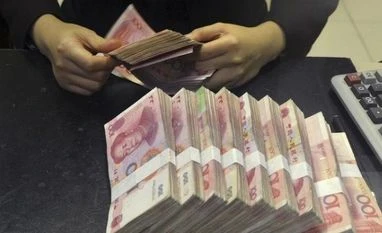A day after China devalued its tightly-controlled currency by 2%, the US has said it is too early to judge the full implications as it would continue to monitor how these changes are implemented.
"While it is too early to judge the full implications of the change in the PBOC reference rate, China has indicated that the changes announced today are another step in its move to a more market-determined exchange rate," a spokesperson of the US Treasury Department said yesterday.
"We will continue to monitor how these changes are implemented and continue to press China on the pace of its reforms, including additional measures to transition to a market-oriented exchange rate," the spokesman said.
As Treasury Secretary Jacob Lew has consistently said, the US has continued to press China to continue financial reform, increase exchange rate flexibility, and move rapidly towards a more market-oriented exchange rate system, he noted.
"While additional reforms are needed, we have seen progress, including new commitments from China that the United States secured at the most recent Strategic and Economic Dialogue to move towards a more flexible, market-determined exchange rate, limit foreign exchange intervention, and increase the transparency of its exchange rate policies. But more progress is needed," the spokesman said.
Alleging that China has manipulated its currency for a long time, Senator Chuck Grassley said this is just the latest example, and it is past the time to do something about it.
"Administrations under both Democrat and Republican presidents have been too timid about taking action, and China has taken advantage in the meantime. The Obama Administration ought to consider everything at its disposal to address China's currency manipulation," he said.
Noting that currency policy also is an outstanding issue in the Trans-Pacific Partnership negotiations, according to the Administration, Grassley said the US needs enforceable currency provisions in trade agreements.
"We need to take action to address currency manipulation by the world's second-largest economy," he said.
"While it is too early to judge the full implications of the change in the PBOC reference rate, China has indicated that the changes announced today are another step in its move to a more market-determined exchange rate," a spokesperson of the US Treasury Department said yesterday.
"We will continue to monitor how these changes are implemented and continue to press China on the pace of its reforms, including additional measures to transition to a market-oriented exchange rate," the spokesman said.
Also Read
"It is remains critical that China pursue policies that reflect its stated desire to move towards an economy driven primarily by household demand rather than exports, which is in China and America's best interests. Any reversal in reforms would be a troubling development," the Treasury said.
As Treasury Secretary Jacob Lew has consistently said, the US has continued to press China to continue financial reform, increase exchange rate flexibility, and move rapidly towards a more market-oriented exchange rate system, he noted.
"While additional reforms are needed, we have seen progress, including new commitments from China that the United States secured at the most recent Strategic and Economic Dialogue to move towards a more flexible, market-determined exchange rate, limit foreign exchange intervention, and increase the transparency of its exchange rate policies. But more progress is needed," the spokesman said.
Alleging that China has manipulated its currency for a long time, Senator Chuck Grassley said this is just the latest example, and it is past the time to do something about it.
"Administrations under both Democrat and Republican presidents have been too timid about taking action, and China has taken advantage in the meantime. The Obama Administration ought to consider everything at its disposal to address China's currency manipulation," he said.
Noting that currency policy also is an outstanding issue in the Trans-Pacific Partnership negotiations, according to the Administration, Grassley said the US needs enforceable currency provisions in trade agreements.
"We need to take action to address currency manipulation by the world's second-largest economy," he said.
)